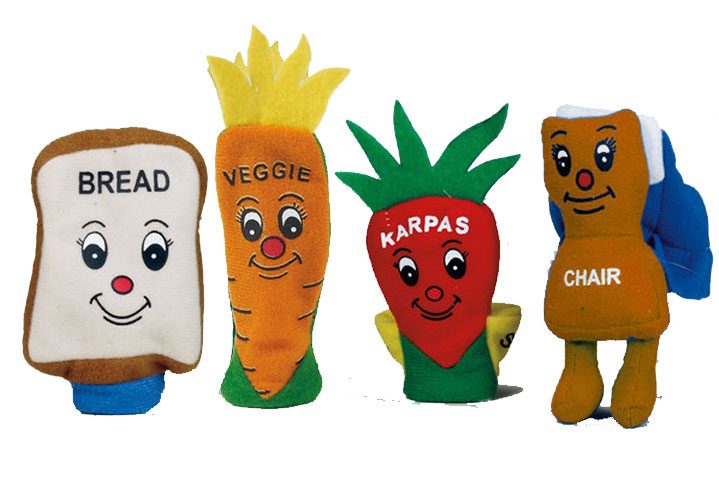The Baal HaHaggadah records four questions, which are to be asked by the youngest person present at the Seder capable of doing so, to the person who is conducting the Seder, whose duty it then is to respond. Fortunately, the Haggadah itself provides a broad array of answers, understandable on many levels, from the level of the toddler to the level of the great scholar.
 The person conducting the Seder, or any other participant, is free to suggest answers, based on primary sources (the Bible and the Talmud), secondary sources (Commentaries or other written sources) or something they heard of, or thought of on their own. As far as these four questions are concerned, it is not only the youngest who may pose the questions, but also anyone present may ask them or pose other questions at any time.
The person conducting the Seder, or any other participant, is free to suggest answers, based on primary sources (the Bible and the Talmud), secondary sources (Commentaries or other written sources) or something they heard of, or thought of on their own. As far as these four questions are concerned, it is not only the youngest who may pose the questions, but also anyone present may ask them or pose other questions at any time.
If there are only adults present, one must ask the other; if there is no one else present, the lone participant must ask them to himself (Self, why is this night different….?).
Thus, we see that the basic structure of the Seder is “Question and Answer.” Judaism is not afraid of questions. Even if no satisfactory answer is found, we take the attitude of “von a kashya, shtarbt man nisht,” which means, in Yiddish, that no one ever died from an unanswered question.
“Enough talk!” – One would not normally say the expression at the beginning of this paragraph, [“E. talk!”] at the Seder, because one of the principles of the evening is “The more one says about the Exodus, the better!”
Nevertheless, specifically, the Four Questions are as follows:
1. Why is this night different from all other nights?
For on all other nights we eat Chametz and Matzah;
And tonight we may eat only Matzah!
2. Why is this night different from all other nights?
For on all other nights, we may eat any vegetable that we want;
And tonight we must eat specifically Marror!
3. Why is this night different from all other nights?
For on all other nights we don’t have to dip any vegetable into a liquid;
But tonight we must dip two vegetables into a liquid –
Karpas into Salt Water and Marror into Charoset!
4. Why is this night different from all other nights?
For on all other nights, we eat either sitting straight or leaning;
But tonight we are required to lean!
